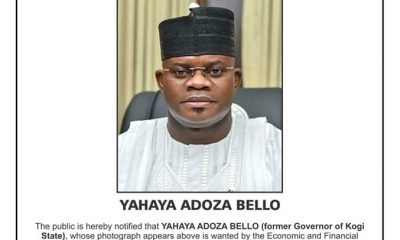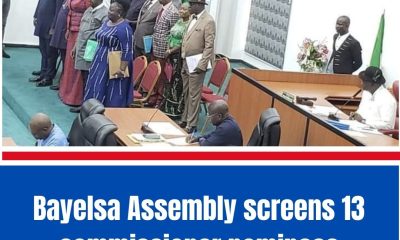News
NASENI’s boss advises the FG to decentralize the varsity salary structure

Prof Mohammad Haruna, Executive Vice Chairman and Chief Executive of the National Agency for Science and Engineering Infrastructure, NASENI, has called for the decentralization of university salary structures.
Prof Haruna, who spoke at the launch of four books and a celebration of excellence by Prof. Aminu Ladan Sharehu, a Professor of Public Administration, at Ahmadu Bello University, ABU, Zaria, argued that lecturers should negotiate with the institution’s Governing Council on a case-by-case basis.
“Let me advocate that the salary structure of universities, and indeed all tertiary institutions, be decentralized in such a way that lecturers are paid for productivity hours,” he says. Salaries should be negotiated on a case-by-case basis with the Governing Council, taking into account the lecturers’ and universities’ capacity and performance.
“It is important to pay living wages, but it does not make sense to pay uniform salaries for lecturers in Damaturu, Birnin Kebbi, Lagos, and Port Harcourt, where the cost of living is not the same.” Lecturers should be compensated based on contact hours and the impact of their output. They can earn more than a Vice Chancellor or a political office holder if their work attracts funding from the private sector or other sources, or if their impact brings glory to their institutions.
“By these, I mean that both the Academic Staff Union of Universities ASUU and the Non-Academic Staff Union of Educational and Associated Institutions NASU are out of touch with reality.” Each institution should have a local union that has an agreement with the Governing Council.
As an academic, I must admit that the attitude of some teaching staff leaves a lot to be desired. Some lecturers aren’t even qualified or suitable to teach the courses that have been assigned to them. Most have no formal teaching qualifications. Most have no desire to teach and are only in the profession as a “long-term job alternative.”
“I’ve seen teachers reuse lesson plans that were given to them as students three to four decades ago.” How can the outcomes of such a process be relevant in today’s fast-paced, digital world? In most public institutions, lecturers are not held accountable for absenteeism, failure to adhere to a planned timetable, or failure to carry out practical assignments outlined in their syllabus. Corruption and sexual harassment are generally unchecked, resulting in graduates who are only half-baked.
“Our universities are not addressing any socioeconomic challenges in their catchment areas, and they have no connections with industries or relevant research organizations.” Most are unable to attract research funding because need-oriented and market-driven research are not in their culture. I’m sure some lecturers could fail the exam they’re giving to their students.
“Lecturers at higher education institutions no longer take vacations in industries to refresh their knowledge.” What is disheartening is that the graduation days or periods of many bright students are sometimes unreasonably delayed by lazy and unsupervised lecturers, with negative consequences for affected students’ career progression, particularly at ABU. There are numerous issues.”
He criticized ABU’s difficulties as a result of the recent strike, saying, “The case of ABU that cannot resume academic activities immediately after the strike is called off is troubling.” ABU has lost many academic years, and any attempt to catch up will result in the production of mediocre graduates. In general, the unemployment rate will rise further. Every year, thousands of unemployable and unskilled but half-baked graduates are produced in Nigeria.”
-

 Sports4 days ago
Sports4 days agoFA Cup: Man Utd suffer fresh triple injury blow ahead Coventry clash
-

 News6 days ago
News6 days agoJUST-IN: EFCC declares Kogi ex-gov, Yahaya Bello wanted
-

 News7 days ago
News7 days agoPort Harcourt company gifts plot of land to Law Graduate, Anyim Veronica
-

 Politics6 days ago
Politics6 days agoBayelsa Assembly screens 13 commissioner nominees
-

 Business3 days ago
Business3 days agoI met N13bn IGR per month but we are now seeing N27bn – Fubara
-

 News4 days ago
News4 days agoDespite Apology, ABU Zaria Final-Year Law Student Arrested For Defaming Police Officer On Facebook
-

 Politics4 days ago
Politics4 days agoSERAP To Govs, Wike: Account For Trillions Of FAAC Allocations
-

 News2 days ago
News2 days agoCourt orders Becky Buodeigha alias Becky Minaj, CEO of BM Secrets to pay Baraza N7m




















